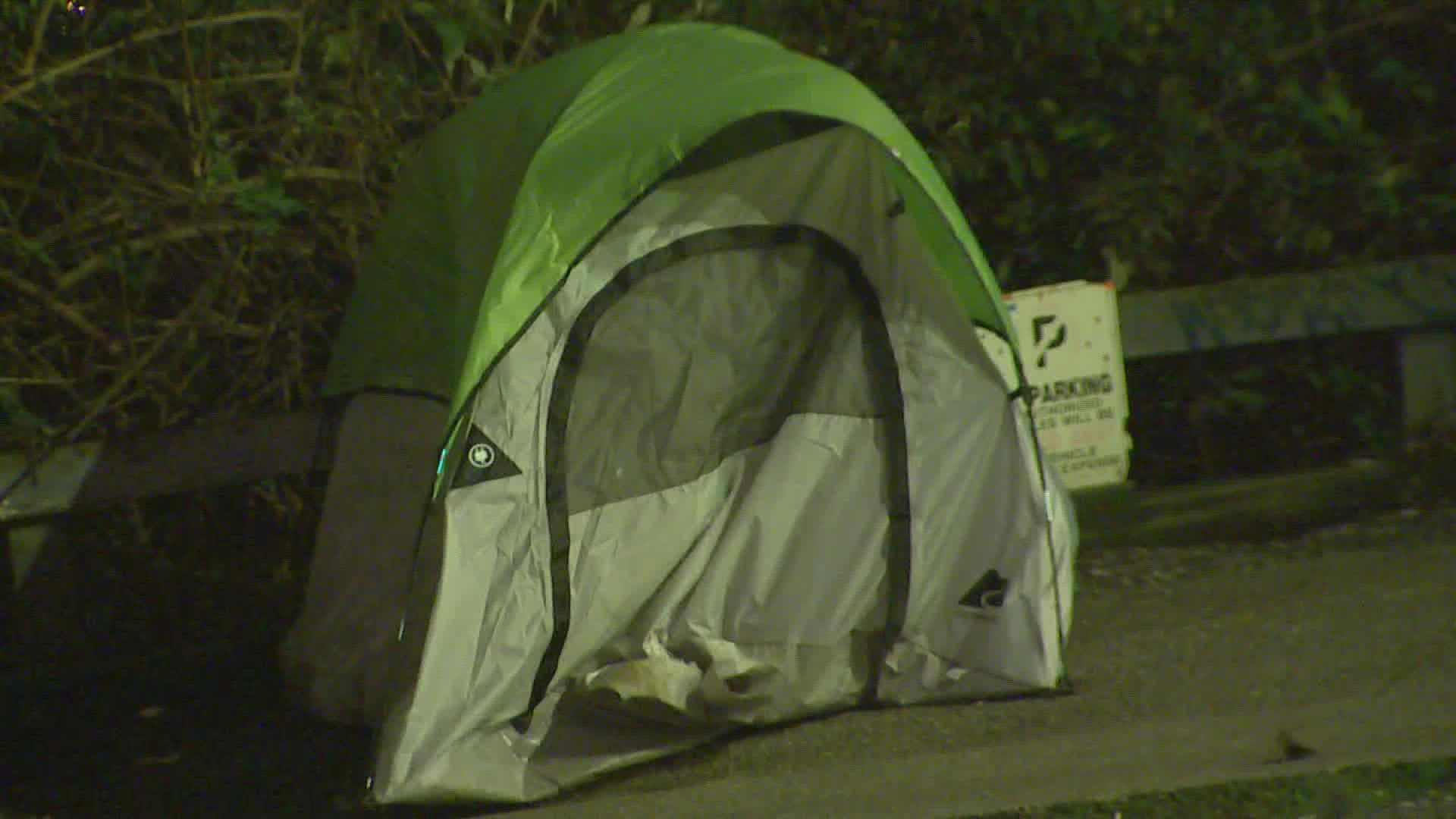SEATTLE — This summer, it was the extreme heat, and now western Washington is about to see the impacts of extreme cold. Just like the heat, the state's homeless and low-income populations are going to feel the worst impacts of the weather.
The reality is, there aren't enough shelter beds or staff to address the situation facing the region. Non-profits are working to hand out blankets and hand-warmers to help people survive and stay warm because it's likely thousands will be sleeping in the freezing cold.
"Same thing I always do, trying to survive. Keeping my head up and praying," said Lamont Berrysmith when asked what his plans are for the extreme cold.
Berrysmith lives in a tent in Belltown. He said he's been homeless for more than 20 years.
Counties have released cold weather plans, but the plans do not include enough beds to house people. Some counties will have warming shelters during the day but no additional overnight space.
"We certainly don't have thousands of emergency beds right now that we're able to stand up," said Compass Housing Alliance Executive Director Mary Steele.
Compass Housing Alliance already operates a shelter and was able to add 80 additional beds starting this weekend for people looking to get out of the cold.
"The first couple nights, you don't have a lot of folks who come in, but as the days go by, more and more people take advantage," said Steele.
In Thurston County, shelters are expected to hit capacity. The county is calling for donations to help people keep warm.
"Hand-warmers and blankets and tarps, so people have the survival gear once the shelter closes," said Darian Lightfoot, the housing program manager for the city of Olympia.
A constraint for groups looking to open more overnight space is staffing. Non-profits have fewer volunteers because of the pandemic, have staff out with COVID-19, and like many industries, are feeling the brunt of staff being worn down.
"Our folks are on the frontlines every day being heroes," said Steele. "Two of my staff members have saved lives in the past week."
Steele doesn't expect the extreme cold to be as dangerous as the extreme heat the area experienced this summer. She said the area has more warming centers than cooling centers. But she worries with climate change, the extremes could become more common.
"It becomes more and more dangerous to just accept a situation where we have thousands of people who don't have a place to live," said Steele. "So, we need to find solutions to that problem."
Steele added the solution is to build more affordable housing.

